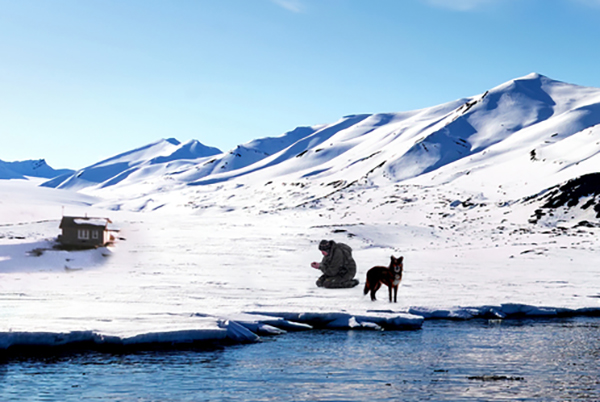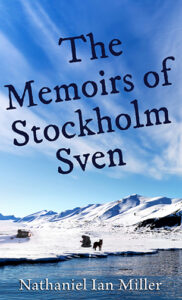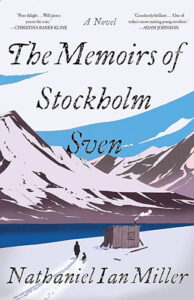Home »

No escaping this novel as you persevere to the end
Book Review
By Derryll White
Miller, Nathaniel Ian (2021). The Memoirs of Stockholm Sven.
“Once you begin to think like a walrus, it is difficult to think like a man again.” – Tapio
 Nathaniel Miller explores solitude the way Neil Armstrong explored space, all in and delighted with what he finds. “One small step for man…” and all that. Almost the whole of this very large story takes place on the isolated island of Spitsbergen [Svalbard] in the Arctic Ocean, far north of Norway. Much of it barren rock, it also supports enough wildlife for Stockholm Sven – also Sven One-Ey or Sven the Seal Fucker – to exist on.
Nathaniel Miller explores solitude the way Neil Armstrong explored space, all in and delighted with what he finds. “One small step for man…” and all that. Almost the whole of this very large story takes place on the isolated island of Spitsbergen [Svalbard] in the Arctic Ocean, far north of Norway. Much of it barren rock, it also supports enough wildlife for Stockholm Sven – also Sven One-Ey or Sven the Seal Fucker – to exist on.
Sven is a Swede, uncomfortable with himself and the world generally, as many of us are. He leaves Stockholm, isolates himself on Spitzbergen and lives a rugged life which has instructions for most readers. Surviving, thinking and learning the skills of a trapper, Sven comes to terms with a world that seemingly has little space for him.
This is an unconventional novel. Posing as a memoir it weaves a tale of self-knowledge, encouraging the reader to explore thoughts that may only lurk in the sub-conscious. Sven is, in many cases, every man. Miller writes with wry, sometimes biting, humour in a very eloquent way. The story pulls the reader and, like the Arctic environment, there is no escaping. One must persevere to the conclusion.
********
Excerpts from the novel:
 COMMUNISM – According to him, that was one of the noxious gases emanating from the rancid bowel of Russian communism: the state-sponsored idea that work would set you free. “Let me be clear,” he said more than once. “Work does not set you free. Surely you of all people should know this, having grown up in a factory. Did you see many free men in the mills of Stockholm?”
COMMUNISM – According to him, that was one of the noxious gases emanating from the rancid bowel of Russian communism: the state-sponsored idea that work would set you free. “Let me be clear,” he said more than once. “Work does not set you free. Surely you of all people should know this, having grown up in a factory. Did you see many free men in the mills of Stockholm?”
FRIENDSHIP – “Nonsense. He has confided in you about matters he has never breathed of in my presence. Every friendship is distinct. And, my dear Sven, allow me to say that if you never allow for the possibility that someone might care for you on your own merit, their way of demonstrating it will always feel unusual or inadequate.”
RFESOLUTENESS – In the absence of companionship, time slows. The mind follows suit. If human existence is one long interaction with stimuli, then the human must adjust to the stimuli around him, or else he must break. At first I watched the weather obsessively, for it moved, changed, and spoke with something like the speed I expected from the society of man. But soon it became one seamless movement instead of a series of staccato events.
BELIEF – It was rare to find theists in Spitsbergen. There just didn’t seem to be any place for it. The Russians, even if they did believe, had been trained not to speak of it, and the rest of us had seen enough pain and cold indifference to know intuitively that no benevolent force was watching. The Arctic had a way of reminding you that your life was unimportant, expendable, and easily extinguished.
SURVIVING – I’d long since learned that if you plan to survive in the Arctic, you must choose one of two paths: emulate the bear, who. like the Titan Cronus, is not a family man, by holding fast to yourself as the last reliable chunk of ice in a breaking, heaving pack. Or choose the fox instead: Avoid presuppositions, but learn fast. Dig a hole and cling tightly to those who can stand you.
 – Derryll White once wrote books but now chooses to read and write about them. When not reading he writes history for the web at www.basininstitute.org.
– Derryll White once wrote books but now chooses to read and write about them. When not reading he writes history for the web at www.basininstitute.org.







